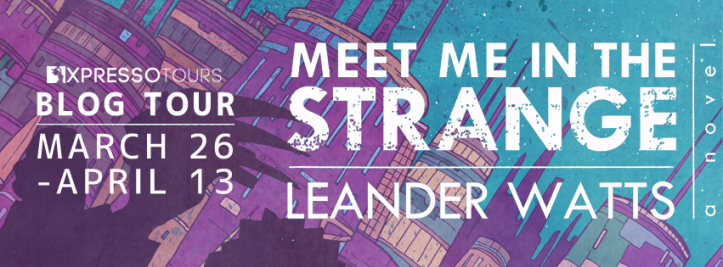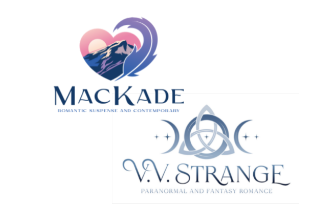This book is, well, strange. Its writer, too. So I got book and author here, and I pass them on to you.
From the author of Beautiful City of the Dead and Stonecutter comes a dreamy, atmospheric coming of age story that will appeal to readers of all ages.
Davi tries to help a new friend, Anna Z, escape a cruel and controlling brother, and the teens end up running away to follow the tour of their rock idol, the otherworldly Django Conn. The story is set in a weird and wonderful retro-futuristic city of glam-girls and glister-boys and a strange phenomenon that Anna Z calls the “Alien Drift.”
 AUTHOR BIO:
AUTHOR BIO: 
Satellite of Love by Leander Watts
Bowie saw it and knew it first. But it was Lou Reed who gave it a name: the Satellite of Love. “I watched for a little while. I love to watch things on TV.” Lou, late to glam, the most lurid and lucid of the seers, was the true voice of the celestial shine. “Satellite’s gone” Lou sings, both celebration and lamentation, “way up to Mars.”
Lou Reed’s move into the trans-orbital limelight came with his second solo album. Produced by David Bowie and Mick Ronson, Transformer gleams with some Ziggy Stardust fallout. The monster hit off the album was “Walk on the Wild Side.” With this, Lou managed to produce queasy-making titillation for the AM dial – with its fairy tales of cross-dressing speed-freaks and crystalline violet sweet tooth. The revelation, however, came with the second single off the second album.
This Satellite of Love is Sputnik after a secret operation. It’s Telstar with one last mysterious TV message to relay to earth. Lou put a sleazy man-woman transformer on the back of the album cover, forcing the obvious transvestite pun. This deflects attention from the far more important electromagnetic phenomenon – AC transformed into DC in order to power the cathode ray tube that was the heart of every TV.
In ’73, soaking in the magic transmissions still had a televisonary aura – late night flicker, the mystic fuzz and flare – the warm hum and cooked-dust scent of vacuum tubes. The tiny disappearing dot in the center of the screen as it goes dead. Static fuzz and stereophonic buzz.
A year later Lou was the self-proclaimed Rock and Roll Animal, with black bondage leather and amphetamine twitchcraft. But on “Satellite of Love,” he’s the wide-eyed sky-dreamer. At first listen, the cut is just a charming bit of throwaway pop filler. The trannies and druggies from the earlier hit got all the attention. Now they’re banal clichés. The light of metallic orbital orbs, however, blinking and beeping in the night sky, remains with us.
The Soviet code name was Object D. But after launch in 1957, the satellite became Sputnik – the name meaning literally “traveling companion.” The word “satellite” too has a rich occult genealogy, signifying: minion, fan-boy, follower, acolyte, worshipper. In 1962, “Telstar” had thousands of devotees as a big radio hit: guitars, organ, and the sound of rocket engines instead of voices.
“Things like that,” Lou confessed ten years later, “drive me out of my mind.”
His “Satellite of Love” came together in its ecstatic four-chord coda. Silvery lounge piano, finger-snaps, horns added in layers and then Bowie’s fey background vocals. The gorgeous whoosh of his “Ahhhh!” – hitting a falsetto D above the operatic tenor’s high C. The gleeful “Ah – ooooh!” like a glorious gay werewolf howling at the artificial moon.
- $25 Amazon gift card

Thanks for hosting today! 🙂
LikeLiked by 1 person
You’re very welcome!
LikeLike
This does sound like a fun story, one to enjoy getting carried away in the plot!
LikeLiked by 1 person
I agree! And the author I’d so interesting too! Thank you for coming by, Vi
LikeLike